|
利用 CSS 来实现对象的垂直居中有许多不同的方法,比较难的是选择那个正确的方法。我下面说明一下我看到的好的方法和怎么来创建一个好的居中网站。
使用 CSS 实现垂直居中并不容易。有些方法在一些浏览器中无效。下面我们看一下使对象垂直集中的5种不同方法,以及它们各自的优缺点。(可以看看 测试页面 ,有简短解释。) 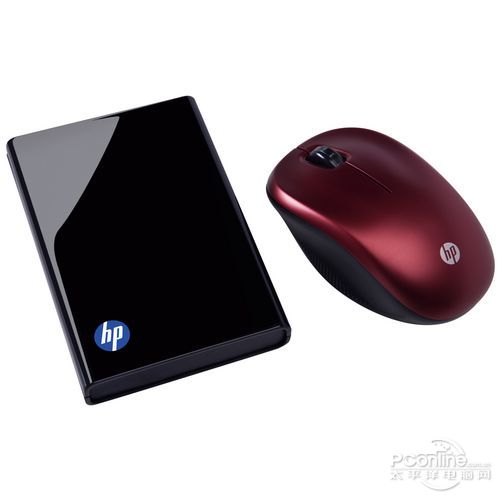
图1
方法一: 这个方法把一些 div 的显示方式设置为表格,因此我们可以使用表格的 vertical-align property 属性。
<div id="wrapper">
<div id="cell">
<div class="content">
Content goes here</div>
</div>
</div>
#wrapper {display:table;}
#cell {display:table-cell; vertical-align:middle;} 优点:
content 可以动态改变高度(不需在 CSS 中定义)。当 wrapper 里没有足够空间时, content 不会被截断
缺点:
Internet Explorer(甚至 IE8 beta)中无效,许多嵌套标签(其实没那么糟糕,另一个专题) 方法二: 这个方法使用绝对定位的 div,把它的 top 设置为 50%,top margin 设置为负的 content 高度。这意味着对象必须在 CSS 中指定固定的高度。
因为有固定高度,或许你想给 content 指定 overflow:auto,这样如果 content 太多的话,就会出现滚动条,以免content 溢出。
<div class="content">
Content goes here</div>
#content {
position:absolute;
top:50%;
height:240px;
margin-top:-120px; /* negative half of the height */
} 优点:
适用于所有浏览器
不需要嵌套标签
缺点:
没有足够空间时,content 会消失(类似div 在 body 内,当用户缩小浏览器窗口,滚动条不出现的情况) 方法三: 这种方法,在 content 元素外插入一个 div。设置此 div height:50%; margin-bottom:-contentheight;。
content 清除浮动,并显示在中间。
<div id="floater">
<div id="content">
Content here</div>
</div>
#floater {float:left; height:50%; margin-bottom:-120px;}
#content {clear:both; height:240px; position:relative;} 优点:
适用于所有浏览器
没有足够空间时(例如:窗口缩小) content 不会被截断,滚动条出现
缺点:
唯一我能想到的就是需要额外的空元素了(也没那么糟,又是另外一个话题)
方法四:
这个方法使用了一个 position:absolute,有固定宽度和高度的 div。这个 div 被设置为 top:0; bottom:0;。但是因为它有固定高度,其实并不能和上下都间距为 0,因此 margin:auto; 会使它居中。使用 margin:auto;使块级元素垂直居中是很简单的。
<div id="content">
Content here</div>
#content {
position:absolute;
top:0;
bottom:0;
left:0;
right:0;
margin:auto;
height:240px;
width:70%;
} 优点:简单
缺点:
IE(IE8 beta)中无效
无足够空间时,content 被截断,但是不会有滚动条出现
方法五:
这个方法只能将单行文本置中。只需要简单地把 line-height 设置为那个对象的 height 值就可以使文本居中了。
<div id="content">
Content here</div>
#content {height:100px; line-height:100px;} 优点:
适用于所有浏览器
无足够空间时不会被截断 缺点:
只对文本有效(块级元素无效)
多行时,断词比较糟糕
这个方法在小元素上非常有用,例如使按钮文本或者单行文本居中。
哪个方法?
我最喜欢的是方法三,缺点不多。因为 content 会清除浮动,所以可以在它上面放置别的元素,并且当窗口缩放时,
居中的 content 不会把另外的元素盖住。看 例子。
<div id="top">
<h1>Title</h1>
</div>
<div id="content">
Content Here</div>
#floater {float:left; height:50%; margin-bottom:-120px;}
#top {float:right; width:100%; text-align:center;}
#content {clear:both; height:240px; position:relative;}
现在你知道是怎么回事了,现在我们开始创建一个简单但是有趣的网站。最终的样子是这样的: 
图2
步骤一: 以语义化标签开始是很好的。下面是我们的页面构成:
#floater/*把 content 置中*/
#contred/*centre 盒*/
#side
#logo
#nav/*无序列表*/
#content
#bottom/*放置版权等*/
这是我用到的 xhtml 代码:
A Centred Company
<div id="centered">
<div id="side">
<div id="logo">
<strong><span>A</span> Company</strong></div>
<ul id="nav">
<li><a href="#">Home</a></li>
<li><a href="#">Products</a></li>
<li><a href="#">Blog</a></li>
<li><a href="#">Contact</a></li>
<li><a href="#">About</a></li>
</ul>
</div>
<div id="content">
<h1>Page Title</h1>
Holisticly re-engineer value-added outsourcing after process-centric collaboration and idea-sharing.
Energistically simplify impactful niche markets via enabled imperatives.
Holisticly predominate premium innovation after compelling scenarios.
Seamlessly recaptiualize high standards in human capital with leading-edge manufactured products.
Distinctively syndicate standards compliant schemas before robust vortals.
Uniquely recaptiualize leveraged web-readiness vis-a-vis out-of-the-box information.
<h2>Heading 2</h2>
Efficiently embrace customized web-readiness rather than customer directed processes.
Assertively grow cross-platform imperatives vis-a-vis proactive technologies.
Conveniently empower multidisciplinary meta-services without enterprise-wide interfaces.
Conveniently streamline competitive strategic theme areas with focused e-markets.
Phosfluorescently syndicate world-class communities vis-a-vis value-added markets.
Appropriately reinvent holistic services before robust e-services.</div>
</div>
<div id="bottom">
Copyright notice goes here</div> 步骤二:
现在我们开始用一些基本的 CSS 来给页面添加样式。把以下代码放入在我们的 html 页面顶部被引入的 style.css。
html, body {
margin:0; padding:0;
height:100%;
}
body {
background:url('page_bg.jpg') 50% 50% no-repeat #FC3;
font-family:Georgia, Times, serifs;
}
#floater {
position:relative; float:left;
height:50%; margin-bottom:-200px;
width:1px;
}
#centered {
position:relative; clear:left;
height:400px; width:80%; max-width:800px; min-width:400px;
margin:0 auto;
background:#fff;
border:4px solid #666;
}
#bottom {
position:absolute;
bottom:0; right:0;
}
#nav {
position:absolute; left:0; top:0; bottom:0; right:70%;
padding:20px; margin:10px;
}
#content {
position:absolute; left:30%; right:0; top:0; bottom:0;
overflow:auto; height:340px;
padding:20px; margin:10px;
}
在我们能够把 content 垂直居中之前, body 和 html 应该被拉伸到 100% 的高度。由于 height在 padding 和 margin 之内,所以我们要把它们设成 0 以防止因为很小的 margin 出现滚动条。
floater 的 margin-bottom 是 content 高度(400px)的一半,-200px。
现在可以看到一下效果:
#centred 的宽度为 80%。这可以市网页随着显示器的大小而变化。一般称作流体布局。设置 min-width 和max-width 以避免网页过大或者过小。 但是 IE 不支持 min/max-width。显然可以用固定宽度来代替。
因为 #centred 是相对定位的,在它里面我们可以用绝对定位来定位元素。设置 #content 的 overflow:auto;以避免滚动条的出现。IE 不怎么喜欢 overflow:auto; 除非我们指定高度(不是 top 和 bottom 的定位,也不是 %)因此我们给它指定高度。 步骤三:
最后要做的就是再添加点样式,让页面好看点。从目录开始吧。
#nav ul {
list-style:none;
padding:0; margin:20px 0 0 0; text-indent:0;
}
#nav li {
padding:0; margin:3px;
}
#nav li a {
display:block; background-color:#e8e8e8;
padding:7px; margin:0;
text-decoration:none; color:#000;
border-bottom:1px solid #bbb;
text-align:right;
}
#nav li a::after {
content:'"'; color:#aaa; font-weight:bold;
display:inline; float:right;
margin:0 2px 0 5px;
}
#nav li a:hover, #nav li a:focus {
background:#f8f8f8;
border-bottom-color:#777;
}
#nav li a:hover::after {
margin:0 0 0 7px; color:#f93;
}
#nav li a:active {
padding:8px 7px 6px 7px;
} 需要注意的是 #centred 的圆角。 CSS3 中,应该有 border-radius 属性来设定圆角的半径(可参考 CSS3之旅: border-radius(圆角) - 糖伴西红柿)。现在的流行的浏览器都还不支持,除非用 -moz(Molilla Firefox) 或者 -webit(Safari/Webkit) 前缀. 
图3
兼容性注意事项:
如你所想,IE 是唯一添麻烦的浏览器。
" #floater 必须指定宽度,否则在任意版本 IE 中,它都啥也不干
" IE 6 中目录被周围太多的空间打断
" IE 8 有多余空间(作者遗漏)
更多的想法:
利用居中的网页可以做很多有意思的事情。我在重新设计 SWFObject Generator 2.0 (使用 SWFObject2.0 生成代码)使用了这个想法。这里有另外的一个想法。
资料:
以下是我参考的一些资料,推荐阅读。
Understanding vertical-align, or "How (Not) To Vertically Center Content"
Vertical centering using CSS
Vertical Centering in CSS
【延伸阅读】 CSS3系列教程
CSS+DIV制作一幅扑克牌系列教程
CSS教程:十步学会用css建站
CSS设计网页时的一些常用规范
|



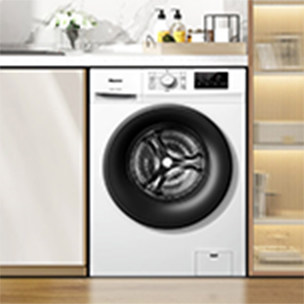 西门子(SIEMENS)274升大容量家用三门冰箱 混冷无霜 零度保鲜 独立三循环 玻璃面板 支持国家补贴 KG28US221C
5399元
西门子(SIEMENS)274升大容量家用三门冰箱 混冷无霜 零度保鲜 独立三循环 玻璃面板 支持国家补贴 KG28US221C
5399元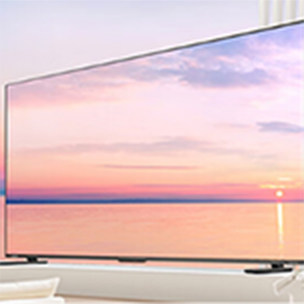 苏泊尔电饭煲家用3-4-5-8个人4升电饭锅多功能一体家用蓝钻圆厚釜可做锅巴饭煲仔饭智能煮粥锅预约蒸米饭 不粘厚釜 4L 5-6人可用
329元
苏泊尔电饭煲家用3-4-5-8个人4升电饭锅多功能一体家用蓝钻圆厚釜可做锅巴饭煲仔饭智能煮粥锅预约蒸米饭 不粘厚釜 4L 5-6人可用
329元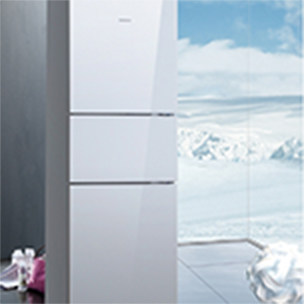 绿联65W氮化镓充电器套装兼容45W苹果16pd多口Type-C快充头三星华为手机MacbookPro联想笔记本电脑配线
99元
绿联65W氮化镓充电器套装兼容45W苹果16pd多口Type-C快充头三星华为手机MacbookPro联想笔记本电脑配线
99元 KZ Castor双子座有线耳机入耳式双单元HM曲线发烧HiFi耳返耳麦
88元
KZ Castor双子座有线耳机入耳式双单元HM曲线发烧HiFi耳返耳麦
88元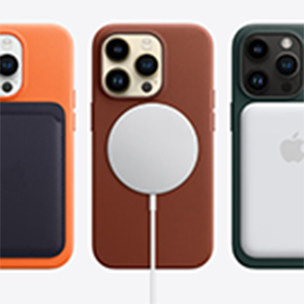 格兰仕(Galanz)【国家补贴】电烤箱 家用 40L大容量 上下独立控温 多层烤位 机械操控 烘培炉灯多功能 K42 经典黑 40L 黑色
499元
格兰仕(Galanz)【国家补贴】电烤箱 家用 40L大容量 上下独立控温 多层烤位 机械操控 烘培炉灯多功能 K42 经典黑 40L 黑色
499元 漫步者(EDIFIER)M25 一体式电脑音响 家用桌面台式机笔记本音箱 蓝牙5.3 黑色 520情人节礼物
109元
漫步者(EDIFIER)M25 一体式电脑音响 家用桌面台式机笔记本音箱 蓝牙5.3 黑色 520情人节礼物
109元












